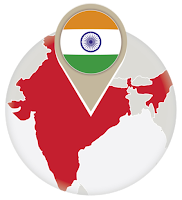Policy
their legislation today could be yours tomorrow
India’s Supreme Court has dismissed a public interest litigation petition requesting end-to-end encrypted messaging apps to be banned. The case was brought by Sudhir Yadav, a Right-to-Information activist who sees encryption as a threat to national security; Yadav is expected to follow up with a complaint to the Telecom Disputes Settlement and Appellate Tribunal (TDSAT).
Privacy, Surveillance and Censorship
government isn't always on your side
government isn't always on your side
A Brazilian court has frozen $6 million USD of Facebook’s money as punishment for ignoring repeated requests for the WhatsApp messages of several suspected international drug traffickers. WhatsApp, which utilizes end-to-end encryption and does not store user messages, argued that it has nothing to give, leaving the company in yet another standoff with the government.

Turkey responded to last Tuesday’s Ataturk airport bombing in a predictable fashion: with a shutdown of Facebook and Twitter and a reminder that sharing images or news of national tragedies is officially banned. Undeterred, citizens turned to VPNs to access much-needed social media and were able to utilize Facebook’s Safety Check and respond to tweets regarding emergency blood donations.

In America, it appears that asking for permission is the same as receiving it. In April, it was revealed that in 2015 the United States Foreign Intelligence Surveillance Court received—and granted—1,457 phone and email interception requests and more recently that state and federal authorities requested—and were granted—4,148 wiretaps.
Research and Initiatives
making your world a more cybersecure place

Quito, Ecuador hosted Cybersecurity Week last week, a joint venture of the Ministry of Telecommunications and Information Society (MINTEL), the International Telecommunications Union (ITU), the Organization of American States (OAS) and the Agency for Regulation and Control of the Telecommunications (ARCOTEL). The event served as an opportunity for government representatives to develop cybersecurity policies and regulations and for others to enhance their cybersecurity knowledge.
Cyberattacks
the threat we all face

A recent Symantec report revealed the United Arab Emirates to be the primary 2015 Middle Eastern recipient of Trojan Laziok, a malware program targeting energy companies. 25% of attempted cyberattacks were directed at the UAE while the numbers for Saudi Arabia, Kuwait, Oman and Qatar were 10%, 10%, 5% and 5%, respectively.
All images credit of BOLDG/Shutterstock.com.
Want more emerging economy cyber alerts? Read on!- Digital Divide: Emerging Economy Cyber Alerts - June 30, 2016
- Digital Divide: Emerging Economy Cyber Alerts - June 23, 2016
- The Week in Emerging Economy Cyber Alerts ~ June 15, 2016
Have valuable insight to share from your part of the world? Write for us!
SumRando Cybersecurity is a Mauritius-based VPN, Web Proxy and Secure Messenger provider. Surf secure and stay Rando!



No comments:
Post a Comment